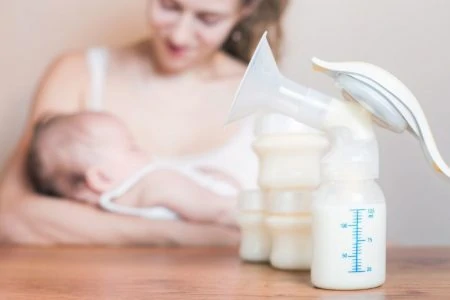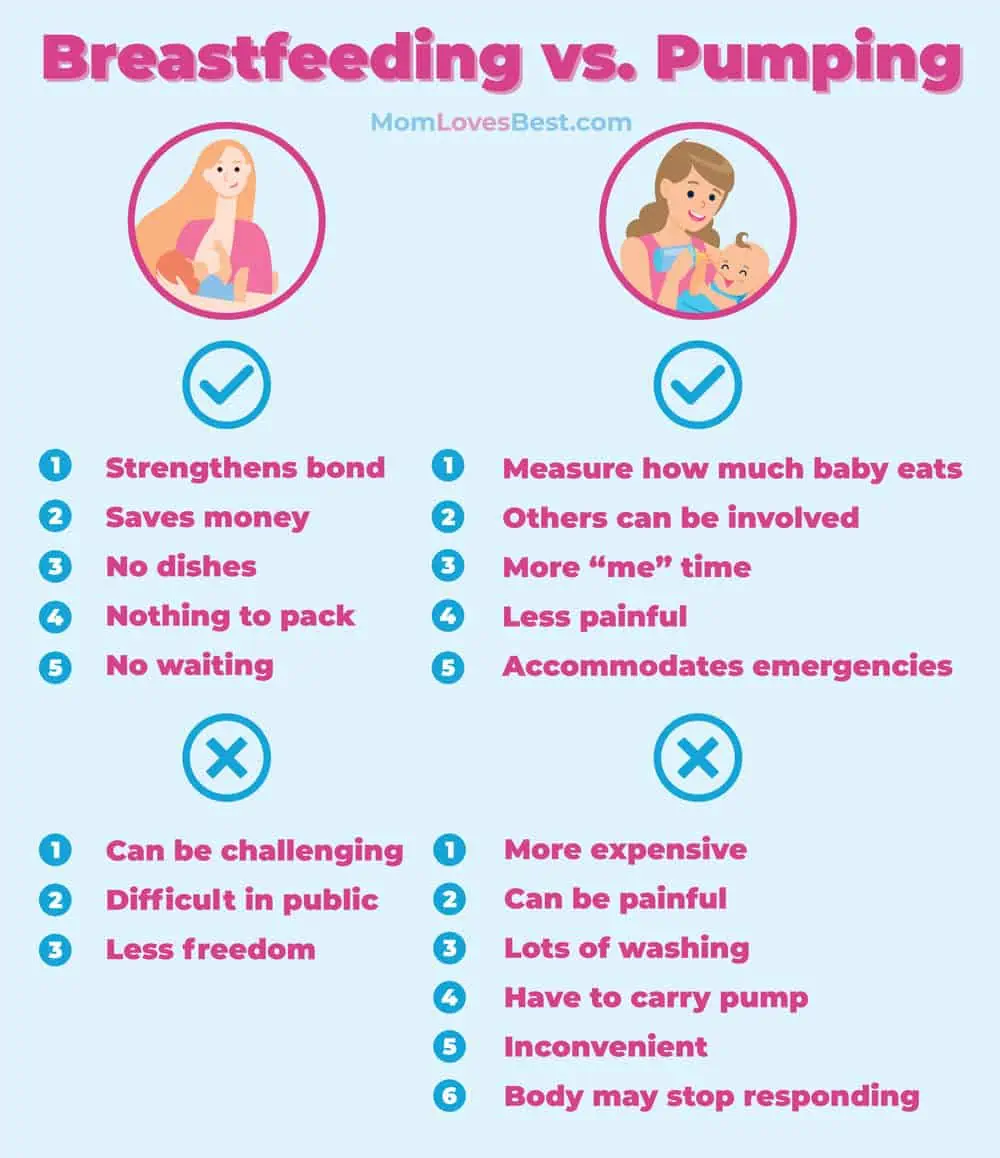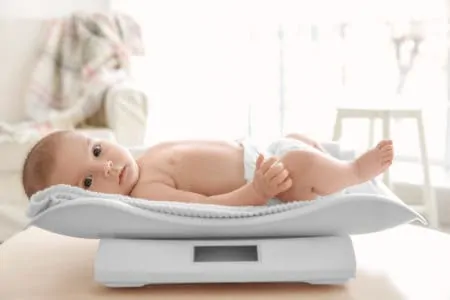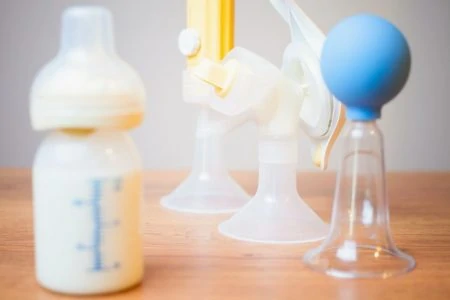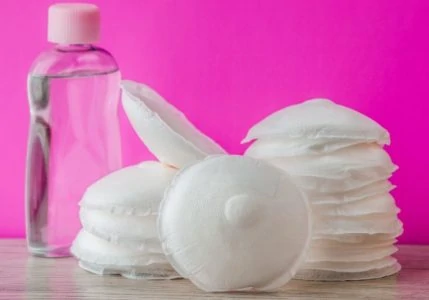Breast milk is often called “liquid gold,” but the delivery method is entirely up for debate. Whether you are nursing directly or hooking up to a pump, you are doing the hard work to feed your baby. But does pumping provide the exact same benefits as latching your little one directly to the breast?
While the American Academy of Pediatrics (AAP) recommends breast milk for the first year, the journey there looks different for every parent. Some nurse exclusively, some pump exclusively, and many do a mix of both.
In this guide, we will break down the real-world pros and cons of breastfeeding versus pumping to help you decide which path, or combination of paths, works best for your family.
Key Takeaways
- Breastfeeding and pumping both deliver essential antibodies and nutrients for your baby’s development.
- Breastfeeding pros: It is free, requires zero prep work, and utilizes a biological feedback loop to customize antibodies.
- Pumping pros: offers bodily autonomy, allows partners to help with feeds, and lets you track exact intake.
- The reality: Neither choice is “easy,” and many parents find success with a hybrid approach (combo-feeding).
The Differences Between Breastfeeding and Pumping
Whether you are directly breastfeeding, exclusively pumping (EPing), or doing a mix of both, your baby is getting the specific nutrients they need. The milk is the same, but the logistics are vastly different.
Many parents choose to pump to facilitate a return to work or to share feeding duties with a partner. Others pump out of medical necessity; perhaps the baby arrived early, has a tongue tie, or struggles to transfer milk efficiently.
Conversely, some babies refuse bottles entirely, making direct nursing the only viable option. Both methods have distinct advantages and challenges.
Pros of Breastfeeding
- Biological feedback loop: When a baby latches, their saliva interacts with your nipple. This sends a message to your body to produce specific antibodies if the baby is fighting off a germ or virus. Pumping provides general antibodies, but direct nursing provides a customized immune response.
- Saves you money: While you might buy nursing bras or nursing tops, direct breastfeeding is free. There are no pumps, expensive parts, or bottles to buy.
- Zero dishes: This is a huge factor for exhausted parents. Nursing requires no washing, sterilizing, or drying of plastic parts.
- Ultimate convenience: You never have to pack a bag of food. Your milk is always the perfect temperature and ready instantly.
- Soothing power: The breast is a magical tool for calming a fussy infant. You can soothe a crying baby almost instantly without waiting to warm a bottle.
Cons of Breastfeeding
- The learning curve: It is natural, but it isn’t always intuitive. You might face cracked nipples, latch issues, or mastitis. Seeing a Lactation Consultant (IBCLC) early on is often crucial for success (1).
- Public feeding anxiety: While legally protected, breastfeeding in public can make some parents feel self-conscious. You might feel the need to use a nursing cover or hunt for a private room.
- “Touched out” syndrome: Being the sole source of food means you are physically attached to the baby for hours a day. This can lead to feeling overstimulated or needing personal space.
My baby would absolutely not take a bottle. When I returned to part-time work, he would simply not eat for the five hours we were apart. While he was fine to nurse right before I left and right when I got home, this made for a stressful situation for my partner!Editor's Note:
Michelle Roth, BA, IBCLC - Sleep disruption: Since you cannot delegate feedings to a partner, you are on call for every wake-up, especially during the nighttime feeds.
Pros of Pumping
- Data tracking: For parents who love data, pumping shows you exactly how many ounces your baby consumes. This can ease anxiety about weight gain.
- Shared responsibility: Partners, grandparents, and siblings can bond with the baby during feeding time. This allows you to sleep or leave the house without the baby attached to you.
- Bodily autonomy: You can get a haircut, go to the gym, or just take a nap. Your body gets a break from the constant physical touch of a nursing infant.
- Less physical pain: Once you find the right flange size, pumping can be gentler on nipples that are recovering from a bad latch or teething bites.
- Emergency stash: Pumping allows you to build a freezer stash. This is vital if you need to take medication incompatible with breastfeeding or face an unexpected hospitalization.
Cons of Pumping
- The cost: It adds up. You need a reliable breast pump, bottles, replacement valves, milk storage bags, and a bottle brush.
- Washing loop: The “pump, feed, wash, sanitize, repeat” cycle is relentless. Sanitizing parts takes up a significant portion of your day.
- Logistics and transport: Leaving the house means packing the pump, cooler, ice packs, bottles, and finding a place to plug in. Pumping in public (or at work) often means sitting in a car or a bathroom stall.
- Potential supply issues: A pump is never as efficient as a baby at removing milk. Some bodies stop responding to the mechanical suction over time, requiring you to troubleshoot with different parts or a manual pump.
Do They Have the Same Benefits?
Breast milk is nutritious regardless of how it is delivered. However, there are slight biological differences between milk consumed directly from the breast and milk that has been stored.
If you exclusively pump, your baby still receives the primary benefits of breast milk, including reduced risks of asthma, obesity, and type 1 diabetes. You also still get the maternal benefits, such as a lower risk of ovarian and breast cancer.
Here is the nuance: Freezing, thawing, and reheating can slightly deplete certain vitamins and live cells in breast milk. It is still superior to formula in terms of digestibility and immunity, but fresh milk is generally more potent than frozen. If you EP (exclusively pump), try to feed fresh milk whenever possible (2).
Hygiene is also a bigger factor with pumping. Breast pumps and bottles have nooks and crannies where bacteria can hide. Proper milk storage and regular sanitation are non-negotiable to keep your baby safe (3).
Finally, oral development differs. Direct breastfeeding supports jaw development and airway health uniquely. Extended bottle use requires careful attention to avoid tooth decay or nipple preference.
Supply Concerns for Exclusive Pumping
One of the biggest fears for pumping parents is maintaining supply. Because the pump provides mechanical suction rather than the hormonal and physical stimulation of a baby, your body may need extra encouragement to keep producing.
To mimic a baby’s patterns, you should aim to pump every time your baby eats. If you notice your milk supply dipping, try “power pumping” (mimicking a cluster feed by pumping in short, frequent intervals) or adding a session in the early morning when prolactin levels are highest.
Watch the baby, not the bottle. If your baby has at least six wet diapers a day, regular bowel movements, and consistent weight gain, you are producing enough.
A common pitfall with bottles is overfeeding. It is very easy for a caregiver to tip a bottle up and let the baby guzzle milk too quickly. This stretches the stomach and wastes your liquid gold. Always instruct caregivers to use “paced feeding” techniques to make the bottle last 10 to 15 minutes (4).
Pumping vs Breastfeeding FAQs
Your Baby, Your Choice
There is no trophy for suffering. Whether you choose the convenience of direct nursing, the data-driven control of pumping, or a mix of both, the goal is a fed baby and a sane parent.
You might start out exclusively nursing and switch to pumping for work later. You might rely on pumping early on if latching is an issue. Be flexible with yourself.
No matter the method, you are providing incredible nutrition for your child. Trust your instincts and do what works for your lifestyle.
